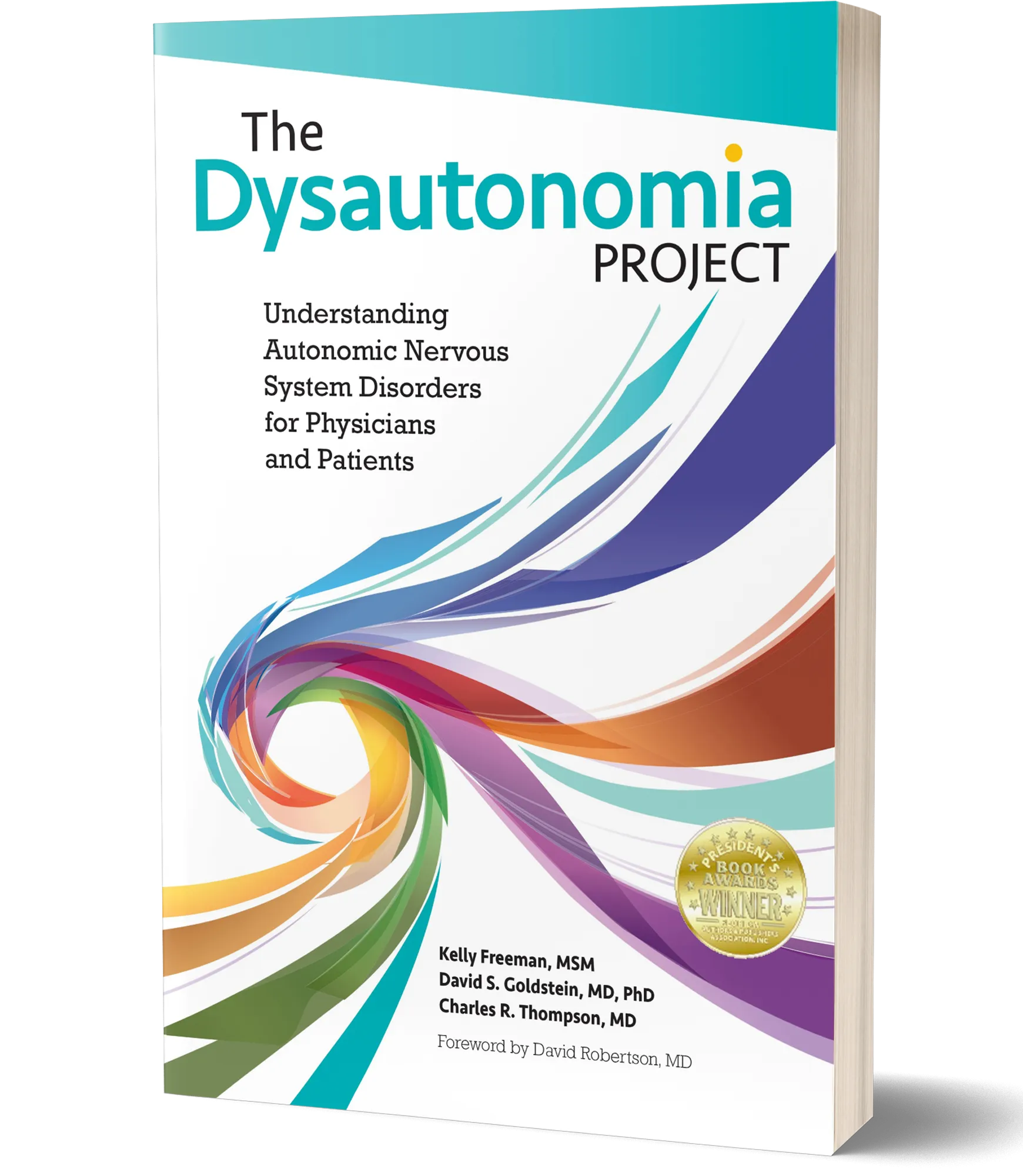Mast Cell Activation Syndrome
Recently experts have identified this disease which can be diagnosed with an exam and lab tests. Although MCAS is extremely complex with many variations, this simplified overview explains: What mast cell activation syndrome is, how it is diagnosed and how it differs from other forms of systemic Mast Cell Activation Disease (MCAD).
The Mast Cell is commonly known as the allergy cell. When working properly it protects the body from invaders (or allergens) by releasing specific chemicals, including histamines, when triggered. This is why many people who have allergies take antihistamines such as Claritin, Benadryl, Zyrtec, etc. which help to block the effect of histamine release. Mast cells are located throughout the body in the connective tissue and are especially prevalent in body parts that interact with the environment such as the gastrointestinal system.
When affected by MCAD mast cells abnormally accumulate and release their chemical/mediator content through mast cell degranulation. Mast cell degranulation causes a wide assortment of symptoms far beyond the runny nose and the irritated skin we commonly think of when an allergic reaction occurs. When mast cells “degranulate” they can cause a cascade of symptoms that effect many, if not all, organ systems including circulatory, neurologic, digestive, etc. with symptoms as innocuous as a skin rash or as life threatening as anaphylaxis. Mast cells can be activated spontaneously or triggered by various chemical, sensory or emotional stimuli due to a mutation of the mast cell. The exact set of symptoms vary greatly from patient to patient because mast cells contain an estimated 60-200 different mediators that may or may not be abnormally released upon activation. The trademark similarity between all patients with systemic MCAD is the presence of multiple unexplained symptoms in many if not all organ systems. There is currently no cure for MCAD but most patients do experience some improvement in symptoms with treatment.
Currently there are three main classifications of MCAD: Systemic Mastocytosis (SM), Mast Cell Leukemia and Mast Cell Activation Syndrome (MCAS.) A fairly rare condition, SM is characterized by mast cell activation with an abnormal accumulation of mast cells in the bone marrow. Diagnostic criteria from the World Health Organization (WHO) is used to assess this condition and requires a bone marrow biopsy.
A majority of patients with SM have “Indolent” Systemic Mastocytosis, a non-aggressive form of SM that includes a varying pattern of long term chronic symptoms and acute episodes. Other quite rare and more threatening forms of MCAD are “smoldering” and “aggressive” SM and Mast Cell Leukemia (MCL.) MCL is extremely aggressive, quite rare and involves extreme infiltration of the bone marrow. Unlike MCL, MCAS is more common and less threatening. Like Indolent SM, patients with MCAS experience a varying pattern of long term chronic and acute symptoms.

How is Mast Cell Activation Syndrome (MCAS) diagnosed?
About 5 years ago experts in MCAD identified mast cells accumulating in locations other than the bone marrow (including the GI tract) and/or activation of mast cells by chemical/mediator release without the accumulation of mast cells in the bone marrow. These findings gave rise to the notion that another form of MCAD, beyond the fairly well known SM (defined by WHO criteria,) exists, MCAS. Currently experts in MCAD are researching better diagnostic techniques. Meanwhile, the following criteria are often used.
Medical History
Medical history of long term chronic and acute symptoms in many or all organ systems which may include some of these common symptoms: abdominal pain, diarrhea, constipation, nausea, non-cardiac chest pain, shortness of breath, sinus problems, difficulties with vision, swollen lymph nodes, tachycardia, blood pressure problems, syncope, flushing, headache, neuropathic pain, difficulty in concentrating, anxiety, sleeplessness, tinnitus, hives, easy bruising, muscle, joint or bone pain, fatigue, and environmental sensitivities.
No other disease
No other disease or condition which can fully explain the wide assortment of symptoms.
Laboratory evidence
Laboratory evidence of mast cell activation which may include abnormal: tryptase in blood, N-methylhistamine in urine, heparin in blood, chromogranin A in blood, or other specific mast cell mediators such as Prostaglandin D2 or leukotrienes.
Response to treatment
Response to treatment which often begins with the use of high dose antihistamines and follows with the use of medicines to either block the effects of mast cell activation in the system or combat the patient’s specific symptoms. (This criteria is often met but is seen by some practitioners as optional.)
It should be noted that currently, without a widely accepted diagnostic criteria such as the WHO criteria for diagnosing SM, some practitioners may use or include additional criteria (such as an increase in serum tryptase of 20% upon activation.) Because of the complexity of mast cell activation, experts in MCAD are in the beginning steps of truly understanding MCAS.
More research is needed to better diagnose and treat patients with MCAS. The following areas of research are either currently underway or are expected in the future regarding MCAS:
- Better diagnostic criteria. Researchers now are looking for better ways to diagnose not only MCAS but also SM.
- Further understanding of the variation in the genetic mutation and how it relates to the classifications and sub-classifications of MCAD.
- Establishment of some sort of library that can be used by practitioners to help make connections between abnormal mediator release, corresponding symptoms and possible treatment options.
- Wider variety and availability of pharmacological and non-pharmacological treatments to help MCAD patients.

MCAD was once thought to be fairly rare, but due to findings in recent years it is now known to be more common.
Patients with a wide assortment of symptoms in multiple or all organ systems (including idiopathic Dysautonomia, Irritable Bowel Syndrome, Interstitial Cystitis, Idiopathic Anaphylaxis, and some subsets of Fibromyalgia, etc.) that are not explained by some other condition should consider MCAS as a possible diagnosis.
































4 Responses
What are the exact laboratory tests that I need to have my PCP order to get a diagnosis.?
Hi Leslie – here are a couple of resources that provide more in-depth information on testing for MCAS:
https://www.mastcellaction.org/about-mcas OR https://www.mastcellhope.org/education/testing-and-diagnosis/
I wish you would clarify a point in this article. Too many practitioners are still all about tryptase when it comes to diagnosing MCAS. They laser focus on it and ignore other mediators (or labs) which are much more correlative with MCAS than tryptase.
Elevated tryptase is about 15% correlative with mast cell activation while an abnormal Heparin assay lab is nearly 65% correlative. Why don’t we hear physicians go on and on about heparin? Because many are stuck in a time warp.
As a patient, this is extremely frustrating. My well being depends on being up to speed on the newer science and diagnostic criteria. But doctors? Some care, some don’t. Some just love to hear themselves yap about how my lack of “elevated tryptase” means I don’t actually have MCAS… even though plenty of other (more predictive) mediators are out of range.
Basically—enough with tryptase. Patients need to be aware and physicians need to come under pressure from their more knowledgeable colleagues so we can all work together with the newest testing criteria. And, for the most part, it doesn’t rely on tryptase.
Hi Chris, thank you for your comment. You are right. Elevated tryptase is not usually elevated in MCAS. This article was originally published in 2013 when there was less scientific knowledge on the topic and we are working to get updates made to the information across our website. In the meantime, we will make note of the date of publication of this article.
Last week we had Dr. Afrin speak at DysCourse on the topic of MCAS in autonomic disorders where he made this point. If you would like to see that video you can still register to access that video and others here: https://dyscourse.dysproject.org/series/dysautonomia-project-Home-page/landing_page